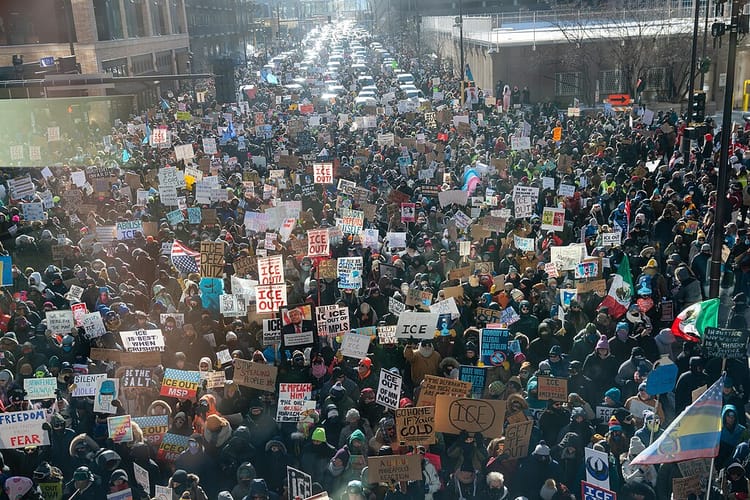A Blockbuster New #ExxonKnew Study + the Gas Stove Culture War

Apologies for this coming a day late! I've been sick and my kids' school has an unusually long winter break so work time has been hard to come by. Plus we're hard at work on Light, Sweet Crude a special crossover season of Drilled and Damages that we'll be launching in February.
If you happened to go to the House Oversight Committee website after January 3rd you may have noticed that all signs of the climate disinformation investigation have disappeared, including the documents. I've archived them in our Document Cloud here for folks who still want to download them. Yet another reason it's so disappointing that Congressional staffers let ego and bullshit DC politicking get in the way of handing over all of the documents from that investigation to the Senate. I hear there are still some ways they may survive, so will keep you posted on any developments on that front.
Meanwhile, we're already off to quite a year here on the climate coverage front. The gas stove culture war has, er, heated up again for a start. And a new peer-reviewed paper from Naomi Oreskes and Geoffrey Supran confirms definitively that Exxon scientists accurately predicted the climate change we're currently experiencing and that company management did not share that information with the public. More on both those stories below.
Thanks for joining us for a new year!
Amy
Peer-Reviewed Study in Science Confirms Once Again that Exxon Knew
A peer-reviewed study published by Harvard University researchers Geoffrey Supran and Naomi Oreskes along with German oceaongrapher and climatologist Stefan Rahmstorf in the journal Science shows conclusively that not only did Exxon's scientists think global warming was going to be a problem and that fossil fuels were exacerbating it, they accurately predicted exactly what would happen if the status quo continued. The study also shows that the company's public statements contradicted their scientists' research. I saw a lot of folks on social media saying "yeah yeah we knew this already" but here's what's really important about this study:
- It's peer-reviewed and in one of the most prestigious scientific, academic journals there is. That makes it much harder for Exxon to spin (although of course that doesn't stop them from trying. More on that in a second).
- It confirms that Exxon's climate predictions were accurate.
- It clearly shows the contradiction between their scientists' accurate predictions, and the degree of certainty with which they were making those predictions, and the company's public-facing statements.
Exxon's move so far has been to point to its win in the New York climate case as proof that none of this matters. They are making that argument, of course (where else?), in Politico. Here's the problem with that argument: the New York case was very narrowly focused on how ExxonMobil accounted on their books for the future price of carbon and how that affected the value of their booked reserves compared to what they said publicly. It had nothing to do with climate deception. It was a securities case. In fact, the judge made a point of making that clear in his opinion: "Nothing in this opinion is intended to absolve ExxonMobil from responsibility for contributing to climate change through the emission of greenhouse gasses in the production of its fossil fuel products."
The other remarkable thing about this study is the wall-to-wall coverage it got. The New York Times, Guardian, CNN, CNBC, BBC, NPR, Associated Press and more all picked up the story, and all did a pretty good job of covering it, too. That's a huge shift from even five years ago when the vast majority of outlets just did not know how to cover this stuff.
To see the specific documents underpinning the Science study, check out ClimateFiles' handy post on it.
Gas Stoves Once Again Become a Frontline in the "Culture War"
In 2020, reporter Rebecca Leber published the first of several blockbuster stories she would write on gas stoves—how dangerous they were, and how the gas industry had worked for decades to sell them—about how the industry was paying Instagram influencers to rave about cooking with gas. Leber went on to write the definitive piece on gas stoves for Mother Jones in 2021 "How the Fossil Fuel Industry Convinced Americans to Love Gas Stoves." Meanwhile, health researchers have been looking into the effect gas stoves have on indoor air quality for decades. Those studies are starting to come fast and furious and none of them look good at all for the gas industry, or for us humans just trying to breathe and not get asthma in our homes.
One recent study found that one in eight cases of childhood asthma is caused by exposure to gas in the home. In 2019, The Lancet attributed around 2 million cases of childhood asthma to nitrogen dioxide poisoning from gas stoves. Amidst this mounting research, the U.S. Consumer Protection Agency floated the idea this week of banning gas stoves and all hell broke loose.
As we covered in S6 of Drilled, the move by environmental groups to push for municipal and state bans on gas in new buildings initially caught the gas industry off guard, but they quickly recovered and began pushing conservative state and local governments to pass preemptive laws banning the bans. A key front in that battle was restaurants and home chefs. The industry moved quickly to align itself with chefs and home cooks, which they've long seen as key messengers in the fight to retain gas's dominance in residential and commercial building. SoCal Gas, one of the largest gas utilities in the country, for example, has a massive Food Service Equipment Center at its Energy Resource Center in Downey, California where it showcases all the amazing ways gas can make your restaurant's kitchen state-of-the-art. Will Morris, a chef and the Food Service Program Advisor at SoCal Gas's Food Service Equipment Center, and Gina Christian, the technical specialist for the center, are both on the board of advisors for the culinary program at the Los Angeles Trade-Technical College, which trains hundreds of new chefs every year (on gas stoves, naturally).
Restaurants were key to the industry's overall strategy in combatting building bans, too. At the 2020 American Gas Association conference, Sue Forrester, the group's top lobbyist, explained: "In California, you know, it was the restaurateurs who kind of came out and said, 'Hey, we like cooking with natural gas,' and they're the ones that are suing in California. And so then if you jump over to other states, you are seeing restaurants have now been exempted, so things are morphing and moving as we go along."
The same rightwing politicians who helped the industry combat building bans were ready when this gas stove ban idea came around to turn it into a full-on culture war issue. Rep. Jim Jordan tweeted: "God.Guns.Gas stoves." Rep Ronny Jackson also connected gas stoves to guns, using the ol' Charlton Heston "they can pry it from my cold dead hands" line.
They care about the stoves, of course, because they care about keeping gas infrastructure in buildings. The main reason people want gas is that the industry has done a stellar job selling us on the stoves. If the stoves go the public demand for gas goes with it. So when Jim Jordan is tweeting about gas stoves, really what he's advocating for is the continued dominance of the fossil fuel industry. Don't forget, this industry just successfully used Russia's invasion of Ukraine to get a whole bunch of new LNG terminals and related gas infrastructure greenlit, the last thing they want to see is a global dip in demand.





